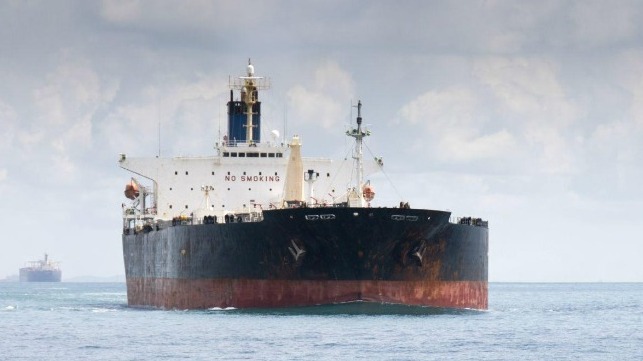Brazil Indicts Tanker, Captain and Chief Engineer for 2019 Oil Spill

Brazilian authorities are moving forward with their assertions that a “Greek flag oil tanker” was responsible for a massive oil spill that washed up on more than 1,500 miles of coastline and cost $47.7 million to clean up in 2019 and 2020. The Federal Police did not name the tanker in the new statement but said that after a two-year analysis they had sufficient proof to recommend that the ship and its owner, the shipping line, and the captain and chief engineer should all be indicted.
The sludge began washing up on the shores of Brazil at the end of August 2019 and by November the authorities reported that they have retrieved over 2,000 tons of oily waste. By the time the cleanup was finished in March 2020, Brazil said the slick had reached more than 1,000 locations in 11 Brazilian coastal states. They reported over 4,500 tons of oil residue was collected after damaging mangroves, breeding grounds for humpback whales and other fishing areas, and coral reefs.
“The Federal Police, based on the evidence and other elements of conviction produced, concluded that there was sufficient evidence that an oil tanker flying the Greek flag was responsible for the launch of the oleaginous substance that reached the Brazilian coast,” the Federal Police announced on December 2.
They said an extensive investigation has been conducted in partnership with various national and international institutions. They conducted a chemical analysis to determine the nature of the material, its characteristics, and origins. “This was necessary, as several theories emerged about the origin of the material (leakage from pipelines, platforms or natural reserves, ships in transit or wrecked, the coast of Africa, etc.),” the statement said announcing the completion of the investigation.
Other elements of their work included efforts to determine the exact location where the oil spill/releases occurred. This was done with satellite images, models, and simulations. They also reviewed data and documentation to confirm the facts in the case.
In November 2019, Brazilian authorities identified a Suzemax tanker, the Bouboulina, operated by Delta Tankers of Greece, as their main suspect in the case. They theorized that the tanker, which had loaded Venezuelan crude released oil while transiting off Brazil on a voyage from Venezuela to South Africa. Federal prosecutors secured warrants to search the offices of the ship's agent and the shipowner's oil pollution prevention contractor.
Delta responded to the accusations saying, “There is no proof of the vessel having stopped, conducted any kind of STS operation (Ship to Ship), oil leaked/spilled, slowed down or veered off course, on its passage from Venezuela to Melaka, Malaysia.” The company said it had reviewed material from the cameras and sensors that all its vessels carry as part of their safety and environmental policies, to monitor activity on board, activity alongside the vessel, as well as course alternations, stoppages, speed, etc. They offered to share the data with Brazilian investors to confirm that their vessel was not responsible for the spill.
The Federal Police will be sending their report to the Federal Judiciary Power of Rio Grande do Norte and the Federal Public Ministry in that federative unit, for analysis and further action. The report recommends prosecution for crimes of pollution, non-compliance with environmental obligations, and damages. The initial minimum in damages is set at $47.7 million as the cost of the cleanup with the total amount of the environmental damage to be determined by the Federal Police.
